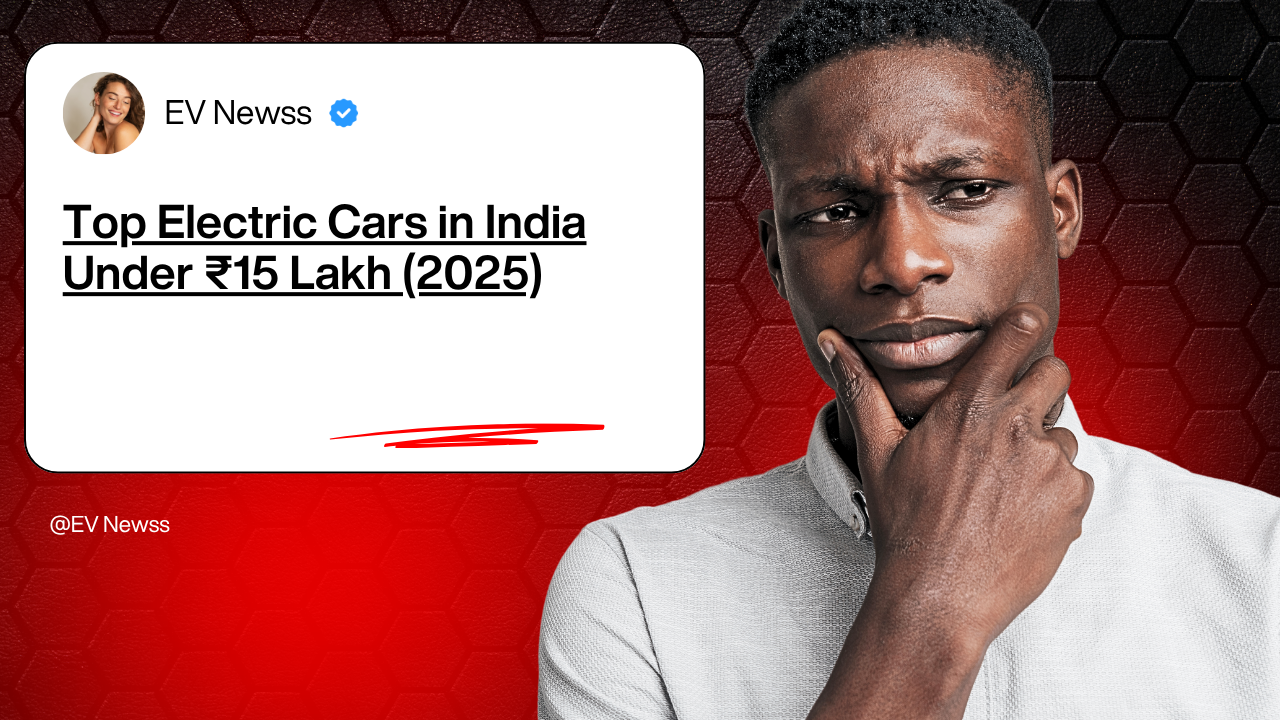Electric cars are becoming more accessible in India, and 2025 brings a wave of affordable, eco-friendly options under ₹15 lakh. Thanks to subsidies, better battery technology, and consumer demand, owning an EV is no longer just for early adopters or luxury buyers. This guide offers an in-depth look at the best electric vehicles in this price range, helping you choose based on range, features, reliability, and real-world usability.
Why Budget EVs Are Gaining Popularity in India ?
- Affordability: With growing competition and localized production, prices have dropped.
- Subsidies: Central FAME-II and state-level incentives lower the on-road price.
- Low Operating Cost: Electricity is cheaper than petrol/diesel, and EVs need less maintenance.
- Urban Usage: Most Indian city commutes are under 50–70 km/day, well within EV range limits.
- Eco-Conscious Generation: Young, urban Indians are actively choosing green mobility solutions.
- Corporate Push: Ride-sharing and last-mile delivery companies are adopting EVs aggressively.
Top Electric Cars Under ₹15 Lakh in 2025
1. Tata Tiago EV
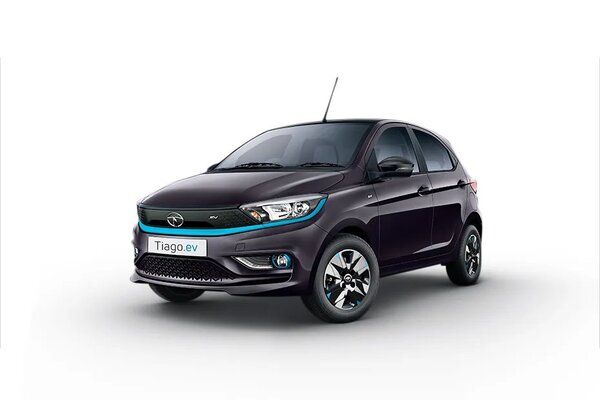
- Price: ₹8.99 – ₹11.89 lakh
- Range: 250–315 km
- Battery: 19.2 kWh / 24 kWh options
- Charging: DC fast charging (10–80% in ~57 minutes)
- Performance: Smooth city acceleration, top speed around 120 km/h
- Safety: Dual airbags, ABS with EBD
- Infotainment: 7-inch touchscreen with Android Auto and Apple CarPlay
- USP: Great entry-level EV with proven reliability
2. MG Comet EV
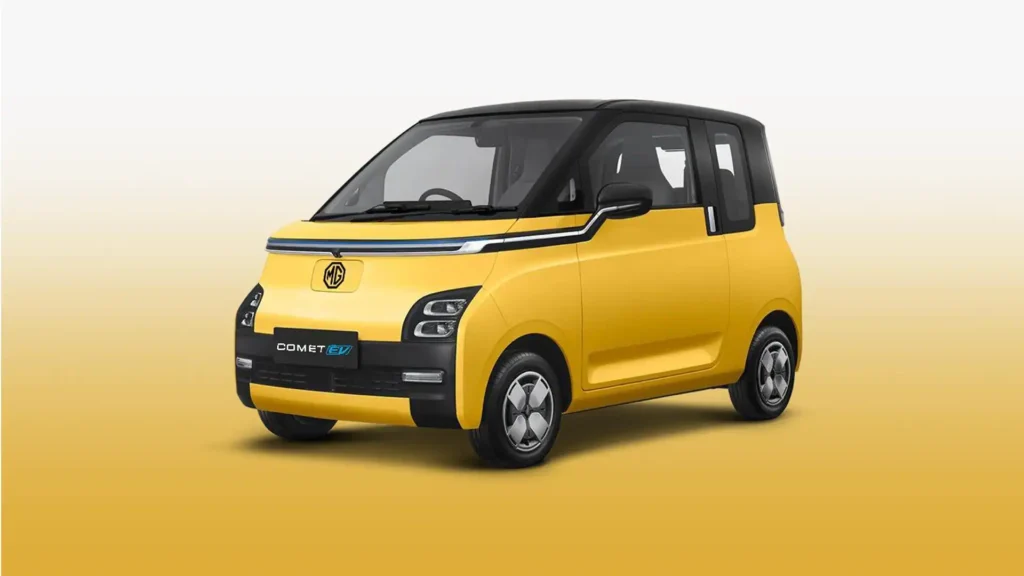
- Price: ₹6.99 – ₹9.39 lakh
- Range: 230 km
- Battery: 17.3 kWh
- Charging: 3.3 kW AC home charger (7 hrs)
- Performance: Ideal for city speeds; 0–60 km/h in ~7 seconds
- Interior: Smart cabin with dual 10.25-inch screens
- Connectivity: i-Smart EV app with remote control features
- USP: Smart tech, premium feel in compact form
3. Citroën ë-C3
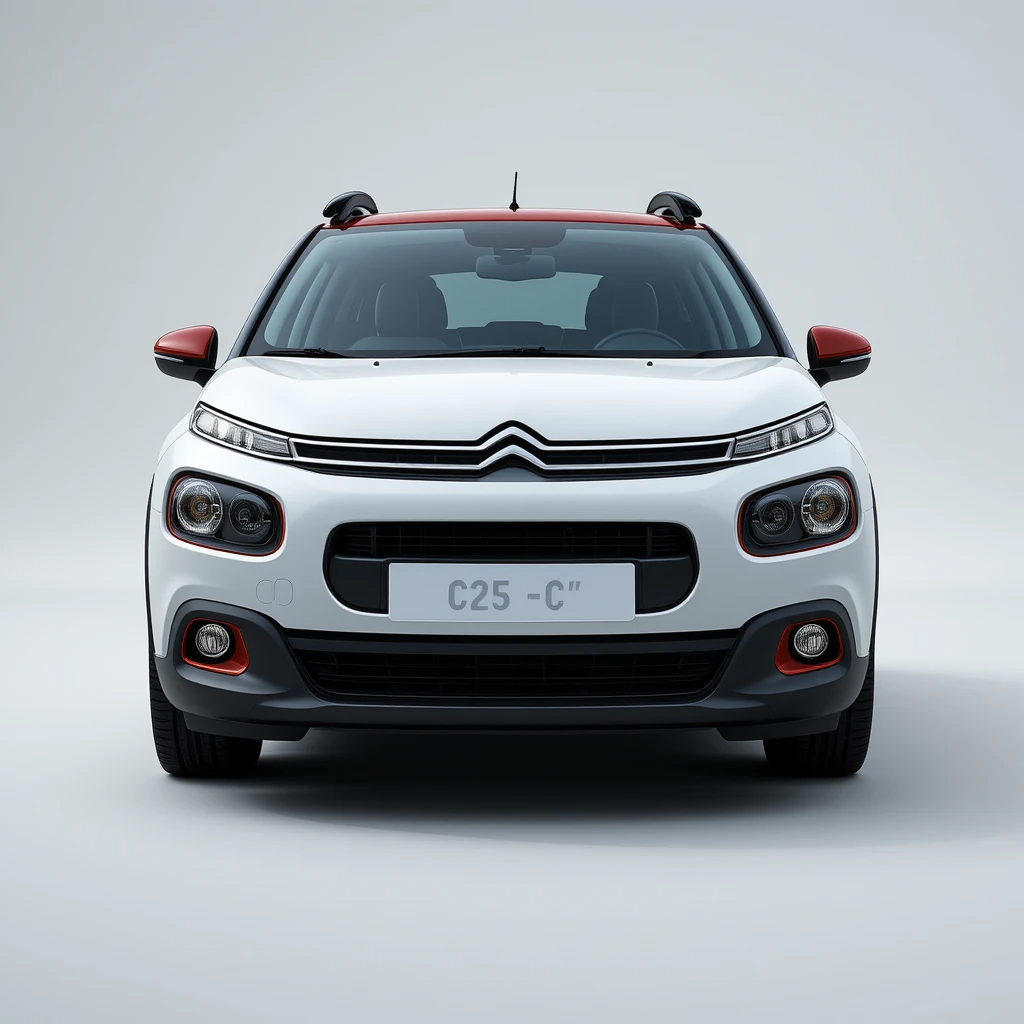
- Price: ₹11.61 – ₹12.79 lakh
- Range: 320 km
- Battery: 29.2 kWh
- Charging: 15A plug point + 3.3kW charger support
- Performance: 0–60 km/h in ~6.8 seconds; torque-rich response
- Interior: 10.25-inch infotainment system, wireless Android Auto/CarPlay
- USP: Stylish SUV stance with soft ride quality
4. Tata Punch EV
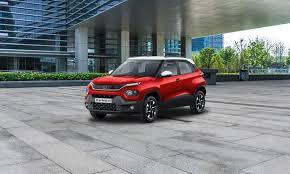
- Price: ₹10.99 – ₹14.49 lakh
- Range: 300–421 km (Medium and Long Range variants)
- Battery: 25 kWh / 35 kWh
- Charging: DC fast charging (56 minutes)
- Features: 360-degree camera, blind spot monitoring, ventilated seats
- Variants: Available in Smart, Adventure, Empowered trims
- USP: Feature-loaded, ideal for long commutes & highway drives
5. Mahindra eKUV100 (Expected)

- Expected Price: ₹9 – ₹10 lakh
- Range: ~250 km
- Battery: Around 15.9 kWh
- Charging: Likely slow charging (details awaited)
- Expected Features: Connected car tech, rugged styling, utility focus
- USP: Will target budget buyers and fleet operators
Comparison Table
| Model | Price Range | Range (km) | Battery Size | Charging Time | Key Feature |
|---|---|---|---|---|---|
| Tata Tiago EV | ₹8.99 – ₹11.89 L | Up to 315 | 19.2/24 kWh | 57 mins (DC fast) | Best entry-level EV |
| MG Comet EV | ₹6.99 – ₹9.39 L | 230 | 17.3 kWh | 7 hrs (AC) | Smart interior, compact footprint |
| Citroën ë-C3 | ₹11.61 – ₹12.79 L | 320 | 29.2 kWh | 10 hrs (AC) | Stylish SUV stance |
| Tata Punch EV | ₹10.99 – ₹14.49 L | 421 | 35 kWh | 56 mins (DC fast) | Advanced features, highest range |
| Mahindra eKUV100 | ₹9 – ₹10 L | ~250 | ~15.9 kWh | TBD | Budget SUV from Mahindra |
What to Consider Before Buying ?
1. State-Level Incentives
States like Delhi, Maharashtra, Tamil Nadu, Gujarat, and Telangana offer additional incentives that reduce the effective cost significantly. Some states waive registration fees and offer subsidies between ₹10,000 to ₹2.5 lakh.
2. Use Case & Drive Pattern
- Daily city commuters: Tiago EV and MG Comet are perfect for urban usage.
- Weekend family drives: Tata Punch EV and Citroën ë-C3 provide superior range and comfort.
- Ride-sharing drivers/fleet owners: Mahindra eKUV100 may be cost-effective once launched.
3. Battery Replacement Cost
Although covered under warranty, battery replacement costs can range from ₹3 to ₹6 lakh depending on capacity. Always check manufacturer coverage terms.
4. EV Charging Ecosystem in India
- Home Charging: Easy with a dedicated AC charger setup
- Public Charging: Growing network by Tata Power, Jio-BP, Ather Grid, Statiq, etc.
- Apps: Plugshare, ChargeZone, and Tata EZ Charge help locate chargers
Pros & Cons of Budget EVs
Pros:
- Massive long-term savings on fuel
- Incentives reduce upfront cost
- Tax benefits under Section 80EEB (for EV loans)
- Quiet, smooth drive experience
Cons:
- Rural charging infrastructure still limited
- EV repair ecosystem is still maturing
- Small boot space in compact EVs
- Range anxiety for highway travel
Expert Tips Before You Buy
- Always test drive before purchase. Check pickup, comfort, and braking feel.
- Compare total cost of ownership (TCO) – consider fuel, insurance, and maintenance savings.
- Opt for fast-charging support even if you primarily charge at home. It’s useful during emergencies.
- Choose brands with strong service networks like Tata and MG.
FAQs
Q1: Is ₹15 lakh enough for a reliable EV in India?
Yes, several options offer solid range, safety, and connectivity within this budget.
Q2: Can budget EVs be used for intercity travel?
Yes, but only those with >300 km range like Punch EV and ë-C3 are suitable.
Q3: What about EV resale value?
Resale value for EVs is catching up, especially for models from Tata and MG with good brand trust.
Q4: Are EVs safe in Indian road conditions?
Yes, all top EVs come with safety essentials like ABS, airbags, and crash-tested bodies. Tata’s models often score 4 or 5 stars in NCAP tests.
Q5: How do EVs handle floods or monsoons?
Modern EVs have waterproof battery packs and IP67-rated components. Avoid submerged driving, just like petrol cars.
Conclusion
The sub-₹15 lakh EV segment in India is becoming highly competitive and consumer-friendly. Models like the Tata Tiago EV and Punch EV deliver excellent value, while options like the Citroën ë-C3 and MG Comet offer unique designs and tech. With increasing range, stronger support networks, and government policies in favor of electrification, budget-conscious Indian buyers can confidently switch to electric cars in 2025.
As battery prices drop and localization improves, expect even better EVs under ₹15 lakh in the coming years. Now is a great time to explore and adopt electric mobility.
Other Articles
How to Start an EV Charging Station Business in India (ROI, Cost, Subsidies) – 2025 Guide
